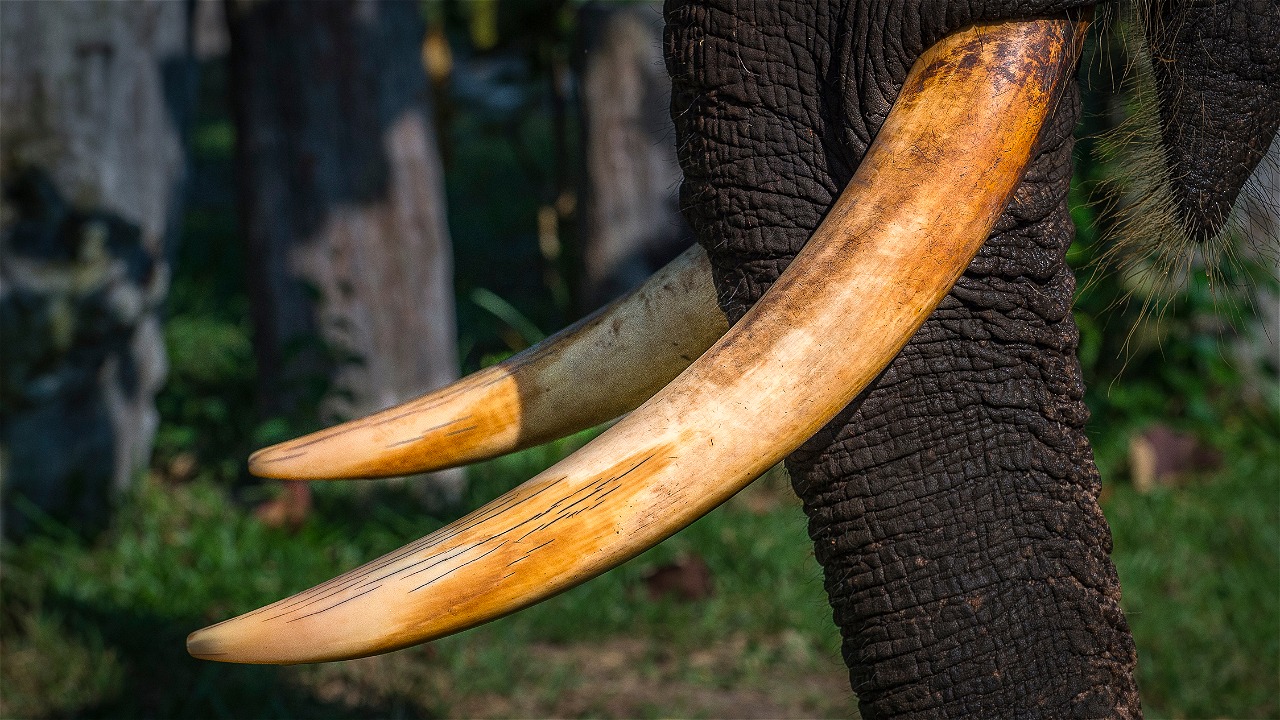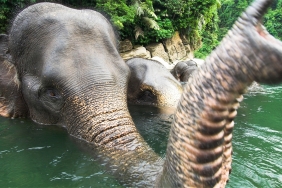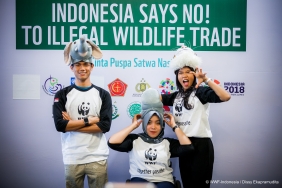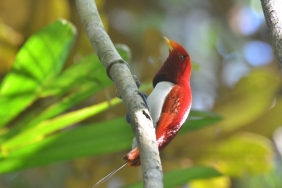GOVERNMENT TO CHARGE PROTECTED WILDLIFE CRIMINALS WITH MONEY LAUNDERING LAW
Medan - The Indonesian government through the Ministry of Environment and Forestry (KLHK) together with the National Police, the Attorney General's Office, and the Financial Transaction Reports and Analysis Center (PPATK) are pushing for the use of the Money Laundering Law to ensnare animal criminals. This is aimed at making the punishment for poachers and traders of protected wildlife in Indonesia more severe.
This became an important point in the Workshop on Law Enforcement of Plant and Wildlife Crimes throughout Sumatra held in Medan, February 2-3, 2016, in collaboration with KLHK and WWF Indonesia. Attending the workshop were the Regional Police, the High Prosecutor's Office, the Natural Resources Conservation Center, and KLHK investigators from various provinces in Sumatra.
Secretary of the Directorate General of Law Enforcement of Environment and Forestry (Gakkum), Kemal Amas said, currently poaching and wildlife trade cases are punished with an average of 2 years in prison or still below the maximum penalty in Law No. 5 of 1990. This law does not provide a deterrent effect for the perpetrators because they are often caught by the same people and networks. The government is currently proposing a revision of Law No. 5 of 1990 on Biodiversity and Ecosystems so that criminal penalties for wildlife criminals can be imposed for more than 5 years in prison and a fine of more than Rp 100 million.
In addition, the government sees a great opportunity to use the Money Laundering Act which can ensnare the perpetrators with heavier penalties. For this reason, the Director General of Gakkum KLHK in this workshop invited the police, prosecutors and PPATK to formulate efforts to increase law enforcement by encouraging the use of articles on money laundering crimes.
Beren Rukur Ginting from PPATK provided support for the application of the anti-money laundering system in animal trade cases in Indonesia. According to him, animal crime is no longer an ordinary crime, but has become an organized crime and is also a transnational transactional crime. Research by the Environmental Education Network in 2014 showed that the state loss caused by animal trafficking reached Rp 9 trillion per year. Globally, animal crime ranks as the No. 3 illegal business after drugs and human trafficking.
"Forestry and environmental crime is one of the original criminal offenses that has a high risk of being a source of money laundering funding. These crimes are often found in conjunction with fraud, forgery, violence, corruption and money laundering," Beren said.
According to Beren, for law enforcement to be effective, a paradigm is needed to not only follow the suspect but also follow the money in pursuing protected wildlife criminals.
Anwar Purwoto, Sumatra Director of WWF Indonesia said "Poaching and wildlife trade is one of the things that drives the rapid rate of extinction of various rare animals in Sumatra". Anwar continued, "The high value of profits obtained from the illegal trade of endangered animals, including trading their body parts, has triggered the continuation of this animal crime and involves many parties ranging from wildlife poachers in villages, dealers (toke), collectors, taxidermists (preserved animal makers -ofset) illegal exporters, to recipients in the destination country."
WWF Indonesia notes that the high demand for endangered animals, including their body parts both at home and abroad for pets, medicine, decoration, traditional medicines is also a trigger for the continued hunting and trade of endangered and protected animals.
WWF Indonesia's data on animal crimes in Indonesia notes that 8 tons of elephant ivory circulated in Sumatra over the past 10 years, more than 100 orangutans are smuggled out of the country each year, more than 2000 slow lorises are traded in Java and also smuggled abroad, and 2000 tringgilings are sold illegally out of the country every month and every year 1 million turtle eggs are traded throughout Indonesia.
"Animal trafficking on social media in Indonesia is also rampant, with 74 orangutans trafficked online and 15 tigers trafficked through Facebook," said Anwar Purwoto.
This workshop encourages law enforcement agencies to pay serious attention to animal crimes by changing law enforcement strategies. Among them is to target the perpetrators of animal crimes at a higher level than the hunters in the chain of poaching and illegal trade in animals, namely the owners of capital and also the exporters or smugglers of animals and or their body parts.
In addition, the law enforcers who attended this workshop considered that it is time for Indonesia to have a task force to combat animal crime. The government and the House of Representatives also need to immediately finalize the revision of Law No. 5 on Biological Diversity that contains more severe sanctions for animal criminals.
In addition to using the Law on TTPU, there is also an opportunity to use other laws related to animal crimes, such as the Emergency Law on Illegal Use of Firearms, the Law on Corruption and so on. Optimal law enforcement of animal crimes also needs to be supported by good coordination supported by effective communication between law enforcers.
Contact Information :
Halasan Tulus, Head of the Center for Security and Law Enforcement of the Environment and Forestry-KLHK Sumatra Region
HP : 08117451896
Chik Rini, Communication Coordinator of Banda Aceh Program
HP: 08116803191 Email: [email protected]





